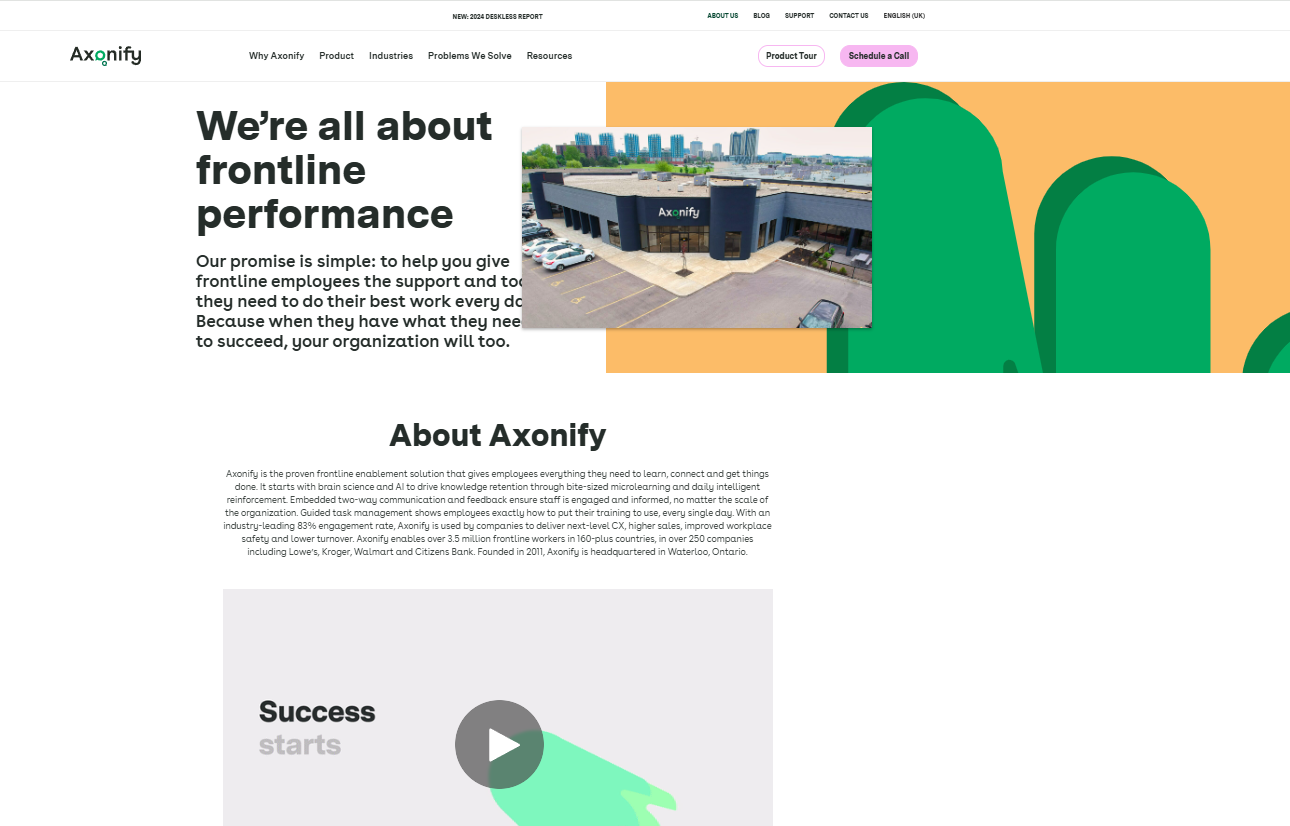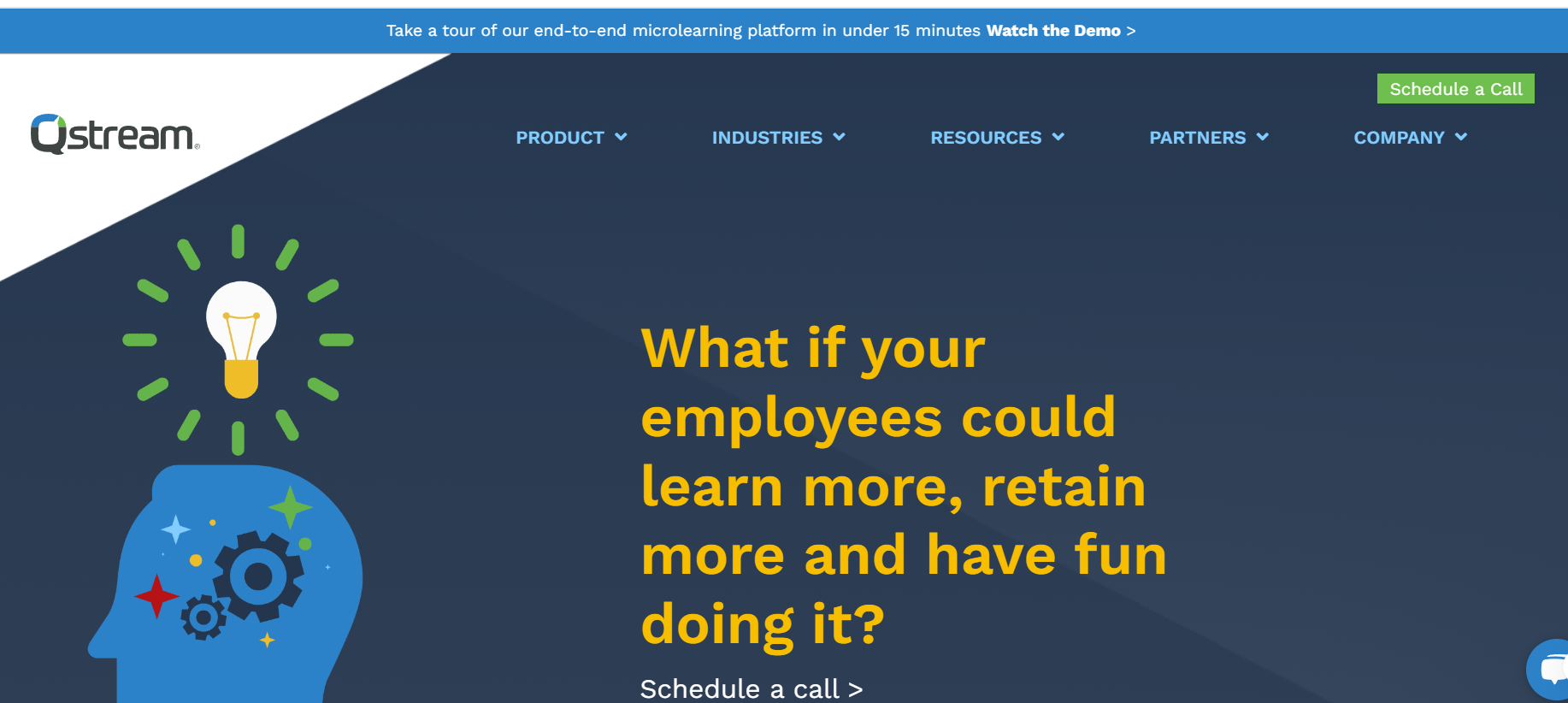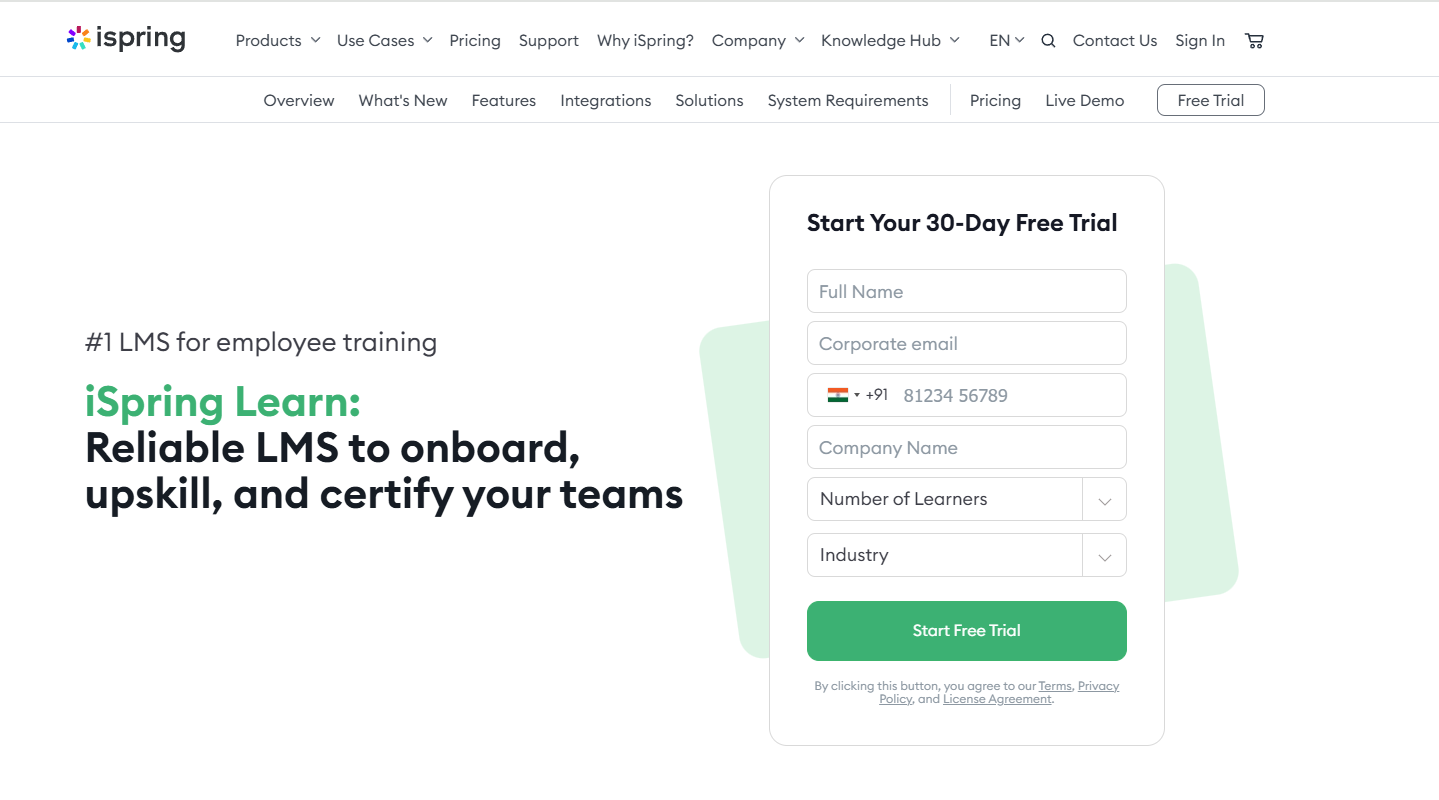Training and development of the frontline teams are cornerstones of an organization’s success When done right, they don’t just teach skills—they empower employees, boost engagement, and improve retention. But let’s face it, the way we approach training has changed dramatically over the past few years, especially for frontline workers.
The pandemic forced businesses to adopt digital tools almost overnight to keep training on track for remote frontline teams especially in industries like FMCG, Pharma, Retails, Automobile and many more. While these tools were necessary, they often created new challenges: too many platforms, too much complexity, and not enough integration. For many sales reps or customer facing employees, training became a frustrating experience of navigating systems instead of learning. Frontline workers had it even harder balancing their demanding roles with disjointed training sessions. The result? Lower engagement, reduced productivity, and slower adaptability to new changes.
Enter microlearning—a practical, modern solution to these challenges. By breaking down training into bite-sized, easily digestible lessons, microlearning integrates seamlessly into daily workflows. Imagine a frontline rep working in the car showroom accessing a quick update on new model launched refresher on their tablet during a shift or a MR learning new upselling techniques via a mobile quiz before clocking in to doctor’s clinic. These scenarios demonstrate the real-time, contextual value microlearning offers.
The numbers back it up: the microlearning market is forecasted to grow from $2.96 billion in 2025 to $5.49 billion by 2030, expanding at a CAGR of 13.13%, according to Mordor Intelligence. Studies also show that microlearning can reduce training costs by 50%, improve learning retention by 17%, and boost content creation speed by up to 300%. These statistics highlight why microlearning has become an indispensable tool for organizations looking to enhance frontline workforce training.
Before diving into platforms let first understand what is microlearning platform and it’s benefits.
What is Microlearning Platform?
Microlearning platform is a digital tool designed to deliver bite-sized, highly targeted learning content. These platforms typically provide:
• Short and Focused Lessons: Training materials that can be consumed in 3 to 10 minutes.
• Interactive Formats: Quizzes, videos, flashcards, and more to engage learners.
• On-Demand Access: Mobile-friendly solutions for anytime, anywhere learning.
By leveraging features like gamification, social learning, and real-time analytics, microlearning platforms ensure that training is not only effective but also aligned with modern learning preferences.
Benefits of Microlearning Platform
1. Cost Savings: Reduces the need for lengthy, resource-intensive training sessions, cutting development costs by up to 50%.
2. Higher Engagement: Interactive and gamified content captivates learners and improves retention.
3. Flexibility: Enables self-paced learning, accessible from anytime, anywhere.
4. Improved Knowledge Retention: Bite-sized lessons, digestible chunks help to embed knowledge more deeply, ensuring that learners can recall and apply what they have learned more effectively.
5. Alignment with Modern Preferences: Caters to Gen Z and millennial learners who prefer concise, visually engaging content.
Let dive into the top 10 microlearning platforms revolutionizing frontline training in 2025. From gamified experiences to AI-driven personalization, these platforms are reshaping how employees learn and thrive in today’s fast-evolving workplace.
1. Axonify

Frontline employees are often pressed for time, juggling demanding roles that leave little room for lengthy training sessions. Axonify steps in as a solution, delivering personalized, daily microlearning bursts that ensure employees retain critical knowledge without compromising their productivity.
What It Solves: High turnover, knowledge retention issues, and time constraints among frontline workers.
Key Features:
• Daily Learning Bursts: Bite-sized lessons that can be completed in under five minutes.
• Spaced Repetition: Reinforces knowledge over time, combating the forgetting curve.
• Industry-Specific Content: Offers over 800 ready-to-use training topics tailored to sectors like retail, healthcare, and logistics.
Real-World Application: Imagine a retail associate learning new upselling techniques before a big sales weekend. Axonify delivers quick, focused lessons tailored to their role. The platform’s spaced repetition ensures the associate retains this knowledge and applies it effectively, boosting sales and enhancing customer satisfaction.
Why It Stands Out: Axonify’s ability to integrate training into daily workflows makes it a go-to platform for industries that rely on frontline workers. Its strong analytics tools also provide businesses with clear insights into how training impacts performance.
Who Benefits Most: Retail, grocery, and healthcare industries that need flexible, role-specific training solutions.
2. 7taps

In fast-paced industries where time is of the essence, 7taps emerges as a powerful solution for quick and effective microlearning content creation. Its mobile-first platform is intuitive, making it easy for trainers to deploy engaging content on the go.
What It Solves: Long development times for training materials and lack of accessible, on-demand learning.
Key Features:
• Rapid Authoring Tools: Create visually appealing, interactive content in minutes. Text-to-video feature that’s available in over 40 languages.
• Mobile-First Design: Optimized for smartphone delivery, ensuring learners can access training anytime.
• Engagement Tools: Interactive flashcards and micro-quizzes boost retention.
Real-World Application: Consider a hospitality company preparing for an event season. Managers can quickly create training on customer service etiquette, complete with multimedia content. Employees access this on their phones, enabling just-in-time learning that aligns with their schedules.
Why It Stands Out: 7taps’ user-friendly interface and rapid deployment make it an ideal choice for businesses that need to respond to training needs quickly without sacrificing quality.
Who Benefits Most: Hospitality, retail, and logistics sectors needing fast, scalable training solutions.
3. talentcards

For industries with deskless workers, talentcards offers a unique training solution through its flashcard-based microlearning and micro- assessments platform. It delivers concise, visually engaging lessons that workers can access anytime, even offline.
What It Solves: Training accessibility for remote or on-the-go employees, particularly in industries like construction and logistics.
Key Features:
• Gamified Flashcards: Makes learning interactive with points, badges, and leaderboards.
• Offline Access: Enables training in environments without reliable internet connectivity.
• Custom Branding: Personalize the platform to align with your company’s identity.
Real-World Application: Construction workers can review safety protocols via talentcards during their breaks, ensuring compliance and reducing accidents on-site. The platform’s offline capability ensures training is accessible even in remote areas.
Why It Stands Out: talentcards’ focus on simplicity and ensures it trains fully mobile employees on compliance, safety, and other related procedures with learning cards.
Who Benefits Most: Construction, logistics, and manufacturing industries with distributed workforces.
4. Master-O

Keeping employees engaged in training programs is a major challenge, especially in industries like sales, customer service, and retail where day-to-day tasks demand immediate attention. Master-O addresses this problem head-on by gamifying the learning process. Its platform is designed to make training interactive, measurable, and fun ensuring that learning not only happens but also sticks.
What It Solves: Master-O addresses multiple challenges faced by organizations in keeping their frontline employees engaged and effective in training programs:
• Employee Disengagement: Traditional training methods often fail to capture employee interest, leading to low participation and retention rates.
• Complexity of Learning Content: Dense and repetitive training content can overwhelm frontline sales rep, particularly those in fast-paced environments.
• Skill Gaps: Identifying and bridging skill gaps is crucial for frontline team development, but conventional methods may not effectively pinpoint these areas.
• Real-World Application: Sales Officer often struggle to apply theoretical knowledge to real-world situations without practical experience.
• Performance Metrics: Linking training outcomes directly to performance metrics is essential for measuring the impact of training on business growth.
Key Features:
• Gamified Learning Modules: Interactive quizzes, challenges, and leaderboards keep learners motivated and invested, transforming mundane training into an exciting experience.
• AI-Based Role Play: Simulates real-world scenarios to help employees practice and hone their skills in a safe environment, ensuring they are well-prepared for actual situations.
• AI-Driven Analytics: Helps to track learner progress, identify skill gaps, and recommend personalized interventions to ensure every employee reaches their full potential.
• Custom LMS Integrations: Works seamlessly with existing systems to enhance their functionality.
Real-World Application: Consider a sales team preparing for a quarterly product launch. With Master-O’s microlearning modules, team members can master product details through short, engaging lessons. The AI-based role play feature allows them to practice their sales pitches and receive instant feedback. Gamification elements like leaderboards foster friendly competition, while real-time analytics provide managers with actionable insights into who may need additional support.
Why It Stands Out: Master-O’s unique focus on linking training outcomes directly to performance metrics sets it apart. Sales teams can measure how learning modules and role play exercises impact conversion rates, enabling businesses to draw clear connections between frontline team training and revenue growth.
Who Benefits Most: Frontline teams like Sales teams and customer service from industries like FMCG, Retail, Pharma, Automobile, Insurance and more looking for an engaging and results-oriented training solution.
5. Qstream

Qstream leverages neuroscience-backed methodologies to deliver training that sticks. By combining spaced repetition with scenario-based challenges, it ensures employees retain knowledge and apply it effectively.
What It Solves: Skill gaps and compliance challenges in industries with complex regulatory requirements.
Key Features:
• Scenario-Based Learning: Simulates real-world challenges to build practical skills, ensuring employees can navigate complex situations with confidence.
• Pulse Learning: Delivers content at spaced intervals to maximize retention, transforming short learning bursts into long-lasting knowledge.
• Analytics Dashboards: Provides deep analytics to identify knowledge gaps and measure learning effectiveness, allowing for targeted improvements.
Real-World Application: A finance team preparing for regulatory audits can use Qstream’s scenario-based challenges to practice compliance procedures, ensuring they’re audit-ready while reducing errors.
Why It Stands Out: Qstream’s focus on measurable outcomes and long-term knowledge retention makes it indispensable for industries where precision is critical.
Who Benefits Most: Finance, healthcare, and legal sectors where compliance and skill accuracy are paramount.
6. eduMe

Remote teams, gig workers, and frontline employees often need access to training materials while on the move. eduMe offers a mobile-first learning experience that ensures training is delivered in the flow of work, making it convenient and impactful for these fast-paced roles.
What It Solves: Provides on-demand training and continuous updates for workers with limited access to traditional training settings.
Key Features:
• Mobile-First Learning: Enables employees to access training on smartphones anytime, anywhere.
• Instant Updates: Facilitates the real-time sharing of new content or important updates.
• Engaging Formats: Offers interactive quizzes, surveys, and micro-lessons to boost learner engagement.
Real-World Application: A delivery company can use eduMe to train drivers on updated safety protocols or route optimization techniques. The content is delivered in small, mobile-friendly modules that workers can access between deliveries, ensuring compliance and efficiency.
Why It Stands Out: eduMe’s seamless integration with tools like Microsoft Teams and Workday ensures training is embedded directly into daily workflows. Its real-time capabilities make it invaluable for industries requiring immediate, actionable knowledge.
Who Benefits Most: Gig workers, remote employees, and frontline teams in logistics, retail, and ride-hailing services.

iSpring Learn offers a comprehensive LMS with a focus on ease of use and robust microlearning capabilities. Its all-in-one platform enables organizations to create, deliver, and track training programs effectively, making it ideal for teams with diverse learning needs.
What It Solves: Simplifies the creation and delivery of high-quality training content while ensuring employees remain engaged and productive.
Key Features:
• Built-In Authoring Tools: Create interactive micro-courses with video simulations, quizzes, and gamification elements.
• Mobile-Friendly Access: Supports offline learning for employees in remote or on-the-go roles.
• Advanced Reporting: Provides deep insights into learner performance, engagement, and progress.
Real-World Application: A healthcare provider can use iSpring Learn to train frontline rep/MRs on new product features. The platform delivers bite-sized training modules that employees can access on their smartphones during breaks, ensuring they stay updated without disrupting their workflow
Why It Stands Out: The platform’s powerful authoring tools and detailed analytics make it a versatile solution for any industry. Its offline learning capabilities are especially valuable for roles that require training in areas with limited connectivity.
Who Benefits Most: Healthcare, education, and corporate sectors requiring versatile training tools.
8. Grovo

Organizations seeking quick and customizable microlearning solutions turn to Grovo for its expansive library of pre-built content and user-friendly customization features. It enables companies to implement training programs rapidly without sacrificing quality.
What It Solves: Reduces the time and effort needed to develop high-quality, targeted training programs.
Key Features:
• Content Library: Offers over 2000 ready-to-use courses on leadership, compliance, and more.
• AI-Driven Personalization: Suggests tailored learning paths for individual employees.
• Customizable Modules: Adapt pre-built content to fit organizational needs.
Real-World Application: A fast-growing startup can deploy Grovo’s leadership modules to train newly promoted managers. The customizable content ensures that frontline Sales training aligns with the company’s culture and goals, helping leaders transition seamlessly into their roles.
Why It Stands Out: Grovo’s focus on rapid deployment and flexibility makes it particularly valuable for small-to-medium-sized businesses. Its ability to provide personalized learning paths ensures relevance for every employee.
Who Benefits Most: Startups, small businesses, and organizations looking for quick, high-impact frontline training solutions.
9. talentLMS

talentLMS combines the capabilities of a traditional LMS with microlearning features, making it a versatile platform for businesses of all sizes. Its emphasis on gamification and customizable learning environments enhances learner engagement.
What It Solves: Balances in-depth training needs with short, engaging microlearning sessions.
Key Features:
• Gamification Elements: Includes badges, leaderboards, and rewards to motivate learners.
• Customizable Portals: Supports branded learning environments for different teams or departments.
• Comprehensive Reporting: Tracks frontline team progress and identifies improvement areas.
Real-World Application: A mid-sized tech company can use talentLMS to onboard new sales rep employees with gamified courses that introduce company policies, product knowledge, and team dynamics. The platform ensures that new hires feel connected and prepared from day one.
Why It Stands Out: Its blend of gamification and scalability makes talentLMS a strong choice for companies with diverse training needs. It’s equally effective for onboarding, compliance, and skill development.
Who Benefits Most: Mid-sized to large organizations with evolving training demands.
10. LearnUpon

LearnUpon is designed for enterprises with complex, large-scale training requirements. Its multi-portal capabilities allow companies to manage diverse training audiences, from employees to partners and customers, all in one platform.
What It Solves: Simplifies training delivery across multiple audiences while ensuring content consistency and scalability.
Key Features:
• Multi-Portal Functionality: Create separate training portals for frontline sales reps, partners, and customers.
• Mobile-Optimized Design: Provides a seamless learning experience across devices.
• ROI Tracking: Links training outcomes directly to business performance metrics.
Real-World Application: A global manufacturing company can use LearnUpon to train its employees on safety regulations, provide product training for partners, and deliver customer education programs—all from a single platform. The advanced reporting tools enable the company to measure the effectiveness of each program.
Why It Stands Out: LearnUpon’s enterprise-level scalability and robust analytics make it a preferred choice for organizations managing large, diverse training programs. Its ability to unify training delivery across multiple audiences ensures efficiency and consistency.
Who Benefits Most: Large enterprises with complex, multi-audience training needs.
Microlearning platforms are not just tools—they are transformative solutions that empower organizations to deliver training that is engaging, effective, and aligned with modern learner needs. Whether it’s gamified learning, AI-driven personalization, or mobile-first design, these platforms cater to a variety of industries and training goals.
By adopting one of these innovative platforms, businesses can reduce costs, improve employee engagement, and ensure measurable outcomes, paving the way for a future-ready workforce in 2025.
Master-O®, a frontline sales readiness and gamification platform, has powered several sales enablement & frontline readiness programs for enterprise customers and been a key driver of sales strategies for leaders across industries. To make capability development, sales enablement & engagement more personalized, Master-O® empowers sales managers tap into various data points and analytics for coaching & upskilling their frontline reps. This gives sales leaders and managers much-required objective perspective to reimagine their sales coaching, capability development & enablement approach and realign it with performance metrics.
At Master-O®, our mission statement is to “Elevate Customer Interactions”. We believe frontline executives in enterprises can generate more revenue and provide a differentiated customer experience if they are made more effective. To achieve that, companies rely on Master-O’s frontline readiness platform to continuously upskill, effectively enable, and engage reps to enhance revenue generation.
To learn more about Master-O®, please visit masteroapp.com or schedule a demo to discover how Master-O® can redefine sales readiness & frontline capability development for your organization.
